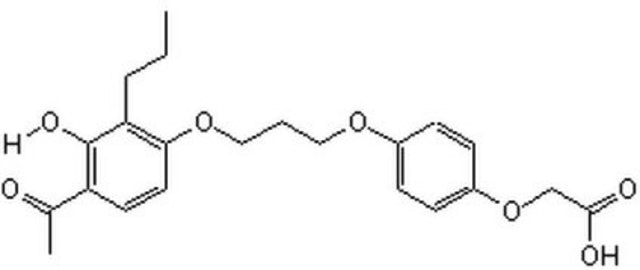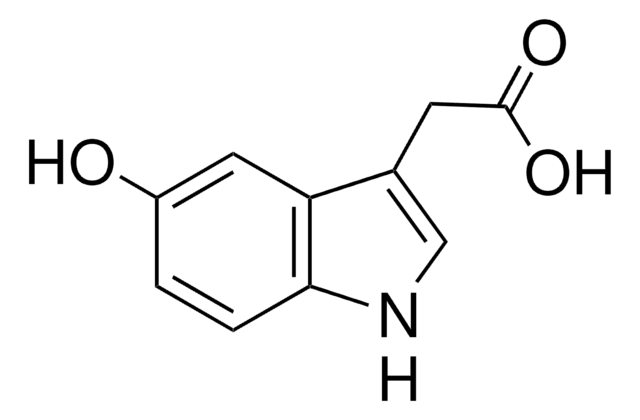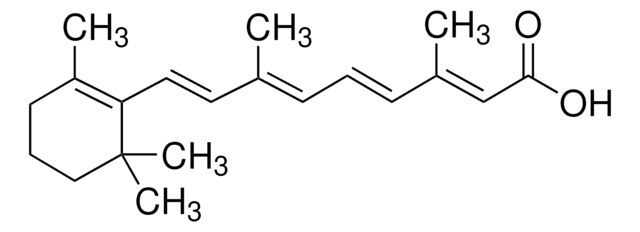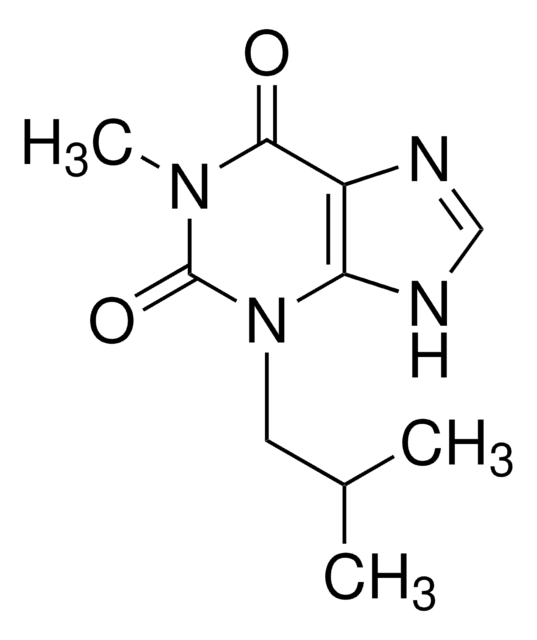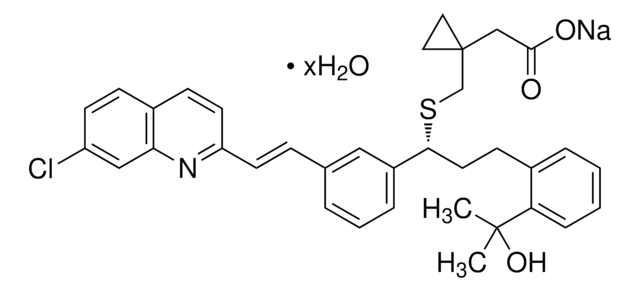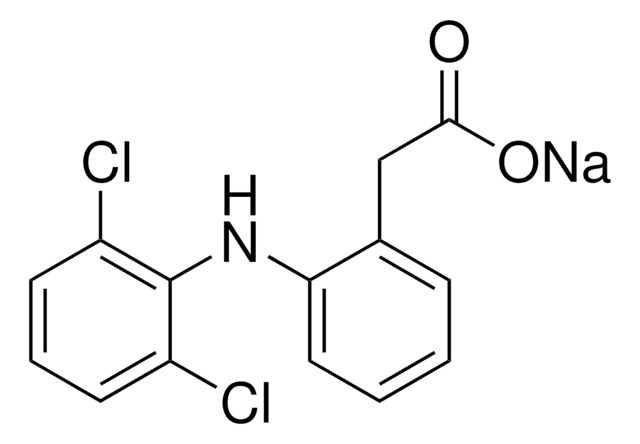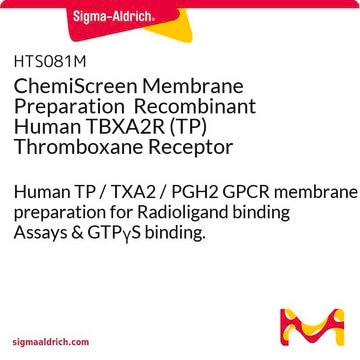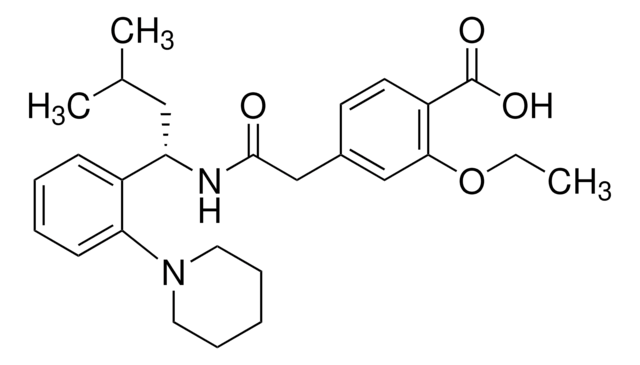L2167
L-165,041
≥98% (HPLC), powder
Synonym(s):
4-[3-(4-Acetyl-3-hydroxy-2-propylphenoxy)propoxy]phenoxyacetic acid
About This Item
Recommended Products
Quality Level
assay
≥98% (HPLC)
form
powder
storage condition
protect from light
under inert gas
color
off-white
mp
127-128 °C (lit.)
solubility
DMSO: >10 mg/mL
originator
GlaxoSmithKline
storage temp.
2-8°C
SMILES string
CCCc1c(O)c(ccc1OCCCOc2ccc(OCC(O)=O)cc2)C(C)=O
InChI
1S/C22H26O7/c1-3-5-19-20(11-10-18(15(2)23)22(19)26)28-13-4-12-27-16-6-8-17(9-7-16)29-14-21(24)25/h6-11,26H,3-5,12-14H2,1-2H3,(H,24,25)
InChI key
HBBVCKCCQCQCTJ-UHFFFAOYSA-N
Gene Information
human ... PPARD(5467)
Application
Biochem/physiol Actions
Features and Benefits
wgk_germany
WGK 3
flash_point_f
Not applicable
flash_point_c
Not applicable
ppe
Eyeshields, Gloves, type N95 (US)
Certificates of Analysis (COA)
Search for Certificates of Analysis (COA) by entering the products Lot/Batch Number. Lot and Batch Numbers can be found on a product’s label following the words ‘Lot’ or ‘Batch’.
Already Own This Product?
Find documentation for the products that you have recently purchased in the Document Library.
Our team of scientists has experience in all areas of research including Life Science, Material Science, Chemical Synthesis, Chromatography, Analytical and many others.
Contact Technical Service